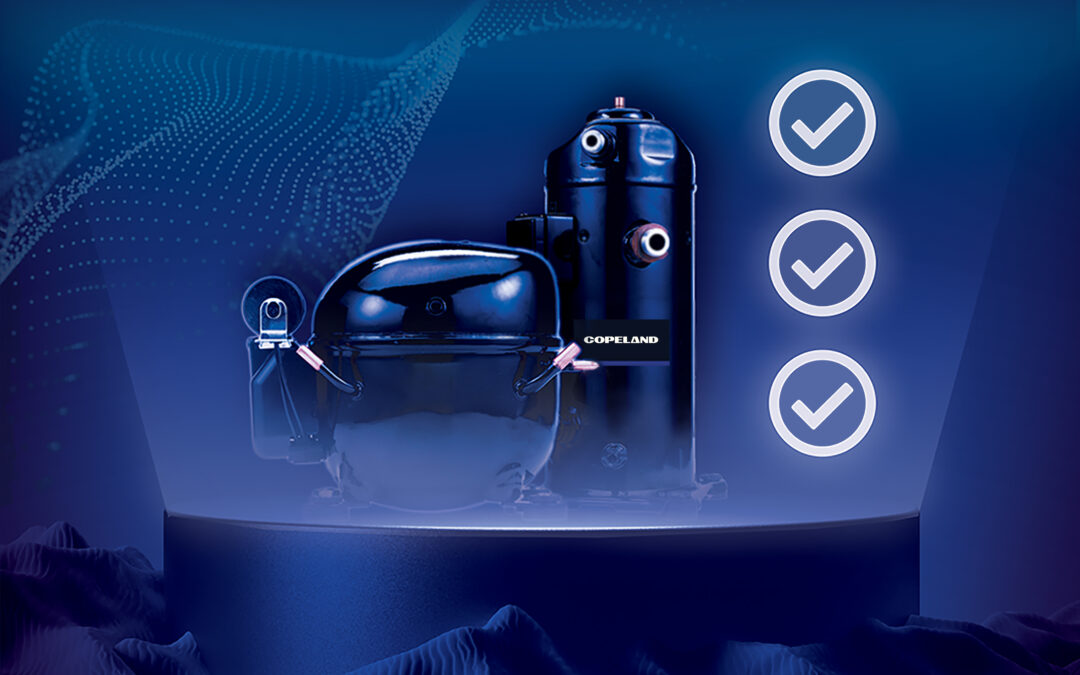*On June 1, 2023 Emerson’s Climate Technologies business became a new standalone company – Copeland. Though our name has changed, we are building on more than a century of HVACR innovation and industry leadership, and Copeland continues to offer the same products, industry stewardship, and learning opportunities you’ve grown to trust. Information found on this webpage posted before June 1, 2023 may contain our old name or branding, but you can be at ease knowing it was created with the knowledge and expertise of Copeland.
The environmental regulations landscape continues to be a source of great uncertainty for the commercial refrigeration and AC industries. Sorting through the latest developments in an ever-evolving mix of global policy, federal and state rulemaking — for both refrigerant and energy efficiency regulations — is a complicated task. In our next E360 webinar, my colleague Dr. Rajan Rajendran, Emerson’s vice president of systems innovation center and sustainability, and I will explore recent regulatory activities and help you to understand their potential impacts on your business. The webinar will take place on Tuesday, Feb. 16 at 2 p.m. EST/11 a.m. PST.

From all indications, 2021 is shaping up to be a transitional year among the federal and state regulations governing commercial refrigeration and AC applications in the U.S. At the federal level, the recent enactment of the American Innovation and Manufacturing Act of 2020 (AIM Act) gives the Environmental Protection Agency (EPA) the authority to phase down the consumption and production of hydrofluorocarbon (HFC) refrigerants and establish sector-based limits. In addition, the introduction of the EPA’s Significant New Alternatives Policy (SNAP) Rule 23 proposal in 2020 was an indication of the agency’s desire to approve certain mildly flammable (A2L) refrigerants as acceptable for use — subject to use conditions — in new residential and light commercial air conditioners and heat pumps.
For several years, the California Air Resources Board (CARB) has stepped up its efforts to phase down the use of HFC refrigerants. This started with the adoption of EPA SNAP Rules 20 and 21 and now continues with a proposal that calls for increased HFC and refrigerant global warming potential (GWP) reductions, which could take effect as soon as January 1, 2022. As a result, retailers in California may soon face the prospect of making significant changes to their refrigeration systems — in at least some of their stores — to achieve compliance.
While retailers outside of the state of California currently may not face an imminent regulatory mandate, member states of the U.S. Climate Alliance are moving forward with their own HFC phase-down initiatives, which include the adoption of EPA SNAP Rules 20 and 21. And with a new administration taking office, we are also likely to see a new tone and urgency with respect to broader climate initiatives, as well as the potential for greater participation in global environmental policies.
All these moving pieces set the stage for a potentially active period of regulatory developments in 2021 and beyond. The primary goals of our upcoming E360 webinar are to explore these developments in more detail, place them into their proper context, and offer insights to help you understand the impacts on your business.
Attendees will learn:
-
- Status of CARB regulations/proposals and their potential impacts
- Review of U.S. Climate Alliance state activities and adoption of EPA SNAP Rules 20 and 21
- Overview of AIM Act and its potential impacts
- Update on the codes and standards for flammable refrigerants, such as UL 60335-2-89 and ASHRAE 15
- Impacts that a new administration may have on climate initiatives
Register now for this informative and free webinar.

Electrical component considerations for A2L system safety
Electrical component considerations for A2L system safety As a new refrigerant category in the...

A2L refrigerant regulation updates: what you need to know today
Preparing for the approval and safe use of A2Ls in commercial refrigeration applications The move...

Address Efficiency Mandates with Compression Technologies
Strategies for complying with DOE and ENERGY STAR® in self-contained and remote condensing units...
